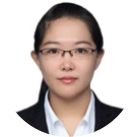Chair: Dr. Yilang Jiang, China Electric Power Research Institute, China

Yilang Jiang, Senior Engineer, Ph.D. He currently serves as an Engineer at the Power System Department of China Electric Power Research Institute. His main research focuses on VSC-HVDC transmission, as well as the planning, operation and control of AC/DC power systems. He is a member of IEC SC 8A WG6 (Characteristics and Coordinated Control of New Energy and High-Voltage DC Systems).
As the project leader, he has completed scientific and technological projects of State Grid Corporation of China, including "Research on Stability Control and System Protection Scheme for Receiving-End Power Grid with Multi-DC Infeed", "Research on the Impact of Flexible DC on Short-Circuit Current and Dynamic Reactive Power Capacity in Planning and Design", and "Research on Joint Ride-Through Characteristics and Technical Requirements of Offshore Wind Power and Flexible DC Transmission Systems". He has rich experience in AC/DC system modeling and simulation, as well as AC/DC power grid planning and stability control research.
He/She has won 3 science and technology progress awards at the provincial and ministerial level and from State Grid Corporation of China, published more than 30 academic papers, obtained 10 authorized national invention patents, and participated in the compilation of 2 national standards and 3 power industry standards.
Co-chair: Prof. Tao Jiang, Northeast Electric Power University, China
 Tao Jiang, Ph.D., Professor, currently serves as the Vice President of the School of Electrical Engineering at Northeast Electric Power University. His main research interests include power system security and stability, renewable energy integration and operation, and integrated energy systems.
Tao Jiang, Ph.D., Professor, currently serves as the Vice President of the School of Electrical Engineering at Northeast Electric Power University. His main research interests include power system security and stability, renewable energy integration and operation, and integrated energy systems.
He is a recipient of the Special Government Allowance from the State Council and has been selected for the National Youth Talent Program. His honors include the Jilin Province "Changbai Mountain Talent Program" Youth Top-notch Talent, Outstanding Chinese Power Science and Technology Worker, the Chinese Electrotechnical Society "Youth Science and Technology Award," the IEEE PCCC "Outstanding Engineer Award," Jilin Province Outstanding Young and Middle-Aged Professional Technical Talent with Significant Contributions, and Outstanding Young Power Science and Technology Talent in China.
He has been awarded two First Prizes and two Second Prizes for the Jilin Province Science and Technology Progress Award, as well as one First Prize for the Chinese Electrotechnical Society Science and Technology Progress Award.
In research, he has presided over one Young Scientists Fund project, two General Program projects, and one Joint Fund Project of the National Natural Science Foundation of China (NSFC). He has also undertaken two projects under the National Key Research and Development Program of China and one NSFC Sino-UK Joint Fund Project. Furthermore, he has led 32 science and technology projects commissioned by power grid companies. He holds 36 authorized national invention patents, has published two academic books, and has authored over 120 SCI/EI academic papers.
Co-chair: Yiying Gao, China Electric Power Research Institute, China
 Gao Yiying, Engineer, Master's Degree. She Currently serves as an Engineer at the Power System Department of China Electric Power Research Institute.
Gao Yiying, Engineer, Master's Degree. She Currently serves as an Engineer at the Power System Department of China Electric Power Research Institute.
She has been engaged in research on flexible HVDC transmission, AC/DC power system planning, security and stability. She has successively participated more than 10 scientific research projects and engineering consulting projects of State Grid Corporation of China, accumulating extensive experience in AC/DC system modeling and simulation, AC/DC power grid planning, and stability control research.
She has published over 10 academic papers and granted 4 national invention patents. She has participated in compiling one academic monograph on UHV AC/DC transmission, one national standard, and two electric power industry standards.
